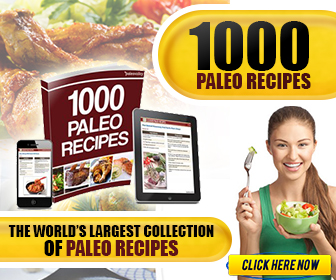Eating Healthy For Vegetarians And Proper Diet
Maintaining a nutrient-rich vegetarian diet is crucial for overall health and well-being. Many people assume that vegetarianism equates to automatic health benefits, but without proper planning, nutritional deficiencies can occur. A well-balanced vegetarian diet includes a variety of food groups to ensure optimal intake of essential vitamins and minerals.
Essential Nutrients for Vegetarians
1. Protein Sources for Vegetarians
Protein is a key macronutrient necessary for muscle repair, enzyme production, and overall cellular function. Vegetarians must diversify their protein sources to obtain all essential amino acids. Here are some excellent plant-based protein sources:
- Legumes and Beans: Lentils, chickpeas, black beans, and kidney beans are packed with protein and fiber.
- Tofu and Tempeh: Derived from soybeans, these are excellent meat substitutes with high protein content.
- Quinoa: A complete protein containing all nine essential amino acids.
- Nuts and Seeds: Almonds, chia seeds, hemp seeds, and pumpkin seeds provide healthy fats and protein.
- Dairy and Eggs: If consuming animal-based products, eggs and dairy serve as great protein sources.
2. Ensuring Adequate Iron Intake
Iron is crucial for red blood cell production and oxygen transport. Vegetarians should focus on consuming iron-rich plant foods along with vitamin C to enhance absorption. The best vegetarian sources of iron include:
- Spinach, Kale, and Swiss Chard
- Lentils and Chickpeas
- Fortified Cereals and Whole Grains
- Pumpkin Seeds and Sesame Seeds
3. Meeting Omega-3 Fatty Acid Needs
Omega-3 fatty acids are essential for brain function and heart health. Since fish is a primary source of omega-3s, vegetarians should consume alternative plant-based options:
- Chia Seeds and Flaxseeds
- Walnuts
- Hemp Seeds
- Algal Oil (Derived from Algae)
4. Getting Enough Vitamin B12
Vitamin B12 is crucial for nerve function and red blood cell production. Since it is primarily found in animal products, vegetarians must seek fortified foods or supplements:
- Fortified Plant Milks (such as almond, soy, or oat milk)
- Nutritional Yeast
- B12 Supplements
5. Sufficient Calcium and Vitamin D Intake
Bone health depends on adequate calcium and vitamin D intake. Vegetarian sources include:
- Leafy Greens like Kale and Bok Choy
- Almonds and Sesame Seeds
- Fortified Plant-Based Milks
- Sunlight Exposure for Vitamin D
Healthy Meal Planning for Vegetarians
1. Breakfast Ideas
A nutritious breakfast sets the tone for the day. Some healthy vegetarian breakfast options include:
- Smoothie with Spinach, Banana, Chia Seeds, and Almond Milk
- Oatmeal Topped with Nuts, Seeds, and Fresh Berries
- Scrambled Tofu with Vegetables and Whole Grain Toast
- Greek Yogurt with Granola and Flaxseeds
2. Lunch and Dinner Options
- Quinoa and Chickpea Salad with Lemon Dressing
- Stir-fried Vegetables with Tofu and Brown Rice
- Black Bean Tacos with Avocado and Salsa
- Vegetable and Lentil Soup with Whole Grain Bread
3. Healthy Snacks for Vegetarians
Snacking can be both nutritious and satisfying with these vegetarian options:
- Hummus with Carrot and Cucumber Sticks
- Mixed Nuts and Dried Fruits
- Rice Cakes with Almond Butter
- Homemade Energy Bars with Dates and Nuts
Benefits of Eating a Healthy Vegetarian Diet
1. Improved Heart Health
A plant-based diet is linked to a reduced risk of heart disease due to lower cholesterol and blood pressure levels.
2. Better Digestive Health
Vegetarian diets tend to be high in fiber, which promotes gut health and regular digestion.
3. Weight Management
Vegetarian diets, rich in whole foods, can aid in maintaining a healthy weight and reducing obesity risk.
4. Lower Risk of Chronic Diseases
Studies suggest that a well-balanced vegetarian diet lowers the risk of diabetes, hypertension, and certain cancers.
5. Environmental and Ethical Benefits
A plant-based diet reduces the carbon footprint and promotes animal welfare.
Eating Healthy For Vegetarians Conclusion
Eating healthy as a vegetarian is completely achievable with proper planning and knowledge of essential nutrients. By incorporating a variety of plant-based protein sources, healthy fats, and micronutrients, vegetarians can maintain optimal health while enjoying delicious and nutritious meals.










